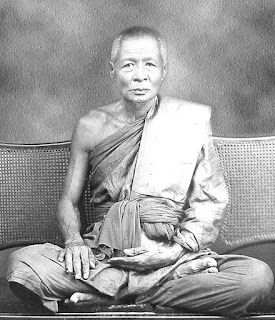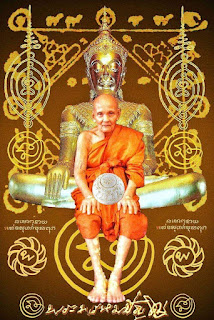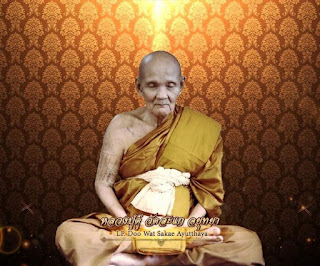Buddhism for Beginners Group
https://goo.gl/SFumwB
Title- Missionary Works !!!
Lecturing, rewriting, sharing, and teaching the Buddha’s discourses are important missionary works. Performing missionary works mean encouraging others to follow the Buddha’s Teachings which can be summed up as: “to refrain from all evils, to do what is good, and to purify the mind”.
First of all, a missionary must cultivate loving-kindness towards all beings and help or teach them to dispel their wrong views which can bring evil consequences. Among the demeritorious actions, the five heinous deeds of killing one’s mother, killing one’s father, killing an arahat, causing blood to settle on the body of the Buddha, and causing schism in the Samgha Order are the worst. Even though the perpetrator of these deeds has done a great deal of meritorious deeds, these cannot help him.
He will be cast into hell (the Niraya) immediately on his death.
Only when he is released from the Niraya, his meritorious deeds of the past existence will bear him good fruits.
A person, who has held a wrong view earns greater demerit than a person who has killed his parents. If a person who has committed one of the five heinous deeds, were to fall to the Niraya when the world is about to be destroyed, he has the opportunity to be released from there at the time of destruction of the world. But the staunch wrong-viewer has to be shuffled to the Niraya of another world which remains undestroyed if the time for his release is not yet due at the time of the dissolution of the world.
The missionary work can salvage one from such grave offence. This can also upgrade one’s mentality in this very life and can help one to attain good future existence. Even more, it can help one to be able to end all sufferings.
Therefore, it should be considered how noble and beneficial the missionary work is.
Everyone should participate in the missionary work and strive for the proliferation of the Truth.
In doing so, one should cultivate loving-kindness on all wrong-believers. If possible, guidance them to be able to escape from wrong-view. Imparting the Buddha’s Doctrine to others is one of the missionary works. The Buddha expounded that there is no other deed as meritorious as imparting the Buddha’s Doctrine.
Everybody has chances to take part in the missionary works. We must try our best to make those who have not yet believed in the Buddha’s Teachings come to believe in the Teachings, and those who have already believed in the Buddha’s Teachings come to believe all the more. If it is possible, we should go to the places where the Buddha’s Teachings have not well-developed to be developed. If we ourselves are unable to do so, we ought to give support to the persons or bhikkhus who are serving for that purpose.
Some Examples of Missionary Works are:
• Making Others Take Refuge In the Three Gems
• Participating In Religious Associations
• Supporting the Learners of the Buddhist Literatures
• Supporting Those Who Are Practising The Dhamma
• Promotion and Propagation of the Buddhist Literatures
• Performing Religious Activities At Home
• Performing Religious Activities In The Community
Title- Religious Activities At Home
Among the various activities for the promotion and propagation of Sasana, the religious activities at home play an important role. A family is composed of parents and their children.
The heads of the family are the parents and they are also responsible for the welfare of the whole family. They are also responsible for implementing religious activities within the family successfully. Therefore, the saying goes: “The meanness of the children falls on the heads of their parents”. In Singalovada Sutta, the Buddha mentioned the five duties of parents thus:
“The parents should restrain their children from doing evil; they should encourage their children to do good; they should provide their children with capital to start a business, and they should arrange suitable marriages for their children”.
Since the time of conception the parents prepare everything well for their coming child.
Being Buddhists, they recite the discourses of protection to protect their child from any danger or enmity. They also take refuge in the Buddha, the Dhamma and the Samgha for the welfare of their offspring. This practice has fully taken place since the Buddha’s time. The mother of Bodhi Prince took refuge in the Three Gems not only for herself but also for her son conceived in her womb.
It is the good tradition of all Buddhists to introduce one’s children to Buddhism as early as possible as the start of family religious activities. During the conception the mother usually takes refuge in the Three Gems and observes the five precepts in order to ward off any danger from the child by the virtues of her meritorious deeds. At the time of the delivery of the child, Angulimala Sutta is usually recited in order to give birth easily. When the woman in labor hears the Sutta, she remembers the virtues of the Three Gems. So she gets relief from the pain and the child can also be blessed with the good virtues of the Triple Gems.
When the naming ceremony is held, the parents invite the bhikkhus to donate offerings.
They take refuge in the Three Gems and they listen to the discourses of protection recited by the bhikkhus for the benefit of the child. When the child grows old enough to speak, they teach him to recite“Buddham saranam gacchami” and so on. They give him the invaluable inheritance of Buddhism. When the child is clever enough to understand things to a certain extent, the parents, while embracing him, start teaching him the habit of paying homage to the Three Gems. They teach him to hold his palms together on his forehead and teach him to say “I pay homage to the Buddha”. This is the first physical conduct of a Buddhist. Parents are the first teachers of their children. Their teachings are strongly impressed on their children’s memory.
Good parents produce good children. Pure lineage, good character, religious and cultural traditions of the parents are valuable inheritance to their children.
King Kakavanna Tissa, the ruler of Lankadipa, made his two sons (Gamani and Tissa) take a vow before meal at the ceremony of feeding the first meal to them not to take any meal without offering it to the Three Gems. In this way he made the Teachings of the Buddha rooted in their hearts. Wise parents establish the spirit of Buddhism in the hearts of their children.
Then they make their children pay obeisance to the Buddha at least twice a day: once in the morning and once in the evening. They also teach them words of prayers and train them to pay obeisance to the five objects of infinite gratitude (Triple Gems, Parents & Teachers) before going to bed and after getting up from bed. At bed time, they tell their children jatakas and stories on Buddhist culture. When the children ask questions, they give answers which the children can remember forever.
The parents teach their children how to offer alms-food to the bhikkhus every morning.
They also teach them how to offer food, water, flowers and lights to the Buddha. In this way, the religious activities in the family get more and more developed. When the children grow older, the parents teach them not to do evil, explaining the disadvantages of doing evil.
And they encourage their children to do good, explaining the benefits of doing good.
When the children are old enough to learn, they are sent to the monastery to learn reading, writing, and arithmetic, and also to learn Buddhist literature such as Mangala Sutta, Singalovada Sutta and Lokaniti. In this way there is a progress of religious activities in the family owing to the piety, the devotion and the wise guidance of the parents.
Buddhism and Myanmar are inseparable and they are joined together permanently. The Buddha’s Teachings are the invaluable guidance for the Myanmar cultural traditions.
Because of this invaluable guidance Myanmar has been a well-civilized country in the world for thousands of years. The nationality and the religious fervour are also well-safeguarded.
The more successful the family religious activities are, the more lasting and the more developed the Buddha’s Teaching will be.
Therefore every Buddhist must try his or her best for the success of the family religious activities which is the foundation for the perpetuation, promotion and propagation of the Buddha Sasana.
Title- Religious Activities In The Community
Performing religious activities in the community is one form of the important tasks for the perpetuation and propagation of the Buddha’s Teachings. Wards and, villages are made up of families. Groups of wards and villages form towns, districts, divisions, states and country. Thus, if the Buddha’s Teachings can be established in each family and community, the Buddha Teachings will flourish in the whole country.
When we follow the Buddha’s Teachings, we shall gain happiness and success not only in the present life but also in the next existences.
Moreover, in our final existence, we shall attain the ultimate peace of Nibbana. It is very precious to be a Buddhist. To be able to enjoy such a precious life, ignorant persons and wrong viewers should be converted into wise persons and right viewers. In doing so, organizations should be formed in villages and townships and lectures and discussions should be held extensively.
According to the Buddha’s advice, One Should Not Only Perform Meritorious Deeds But Also Urge Others To Do So.
Four types of persons are mentioned in the Buddhist literature as follows: —
(1) A person who himself does meritorious deeds but does not urge others to do so;
(2) A person who urges others to do meritorious deeds but he himself does not do so;
(3) A person who does not himself do meritorious deeds nor urges others to do so;
(4) A person who himself does meritorious deeds and urges others to do so.
Their different attitudes and activities bring different benefits to them. When they reap the benefits of their meritorious deeds in future existences:
-The first person enjoys great wealth but lacks companionship;
-The second person enjoys companionship but lacks wealth;
-The third person enjoys neither wealth nor companionship;
-The fourth person enjoys both wealth and companionship.
According to this discourse, it is obvious that a person, who himself does the meritorious deeds and urges others to do so, will enjoy the greatest benefits among the four types of persons.
Therefore Adda A to lead the community to participate in religious activities is of great importance.
There are two main objectives in doing the religious activities in the community:
(1) to bring peace and prosperity to the members of community not only in the present lives but also in future existences, and
(2) to promote unity among the community.
Hence peace and happiness cannot be achieved by the physical progress alone has been demonstrated by the people of technically advanced countries. The moral progress is very essential to achieve true peace and happiness in life. The Buddha’s Teachings can actually furnish the spiritual and moral progress to all human beings.
Therefore, every citizen should participate in the noble missionary work of propagating the Buddha’s Teachings in the community as well as in the whole country so that all the people are spiritually and morally developed to enjoy peace and happiness to the fullest extent.
*****
The distinguished German scholar-monk Nyanaponika Thera explains some of the core issues in the teachings of the Buddha in lucid and accessible language. His The Vision of Dhamma, an intuitive look into the real nature of existence, is a modern “Guide for the Perplexed.”
Nyanaponika incorporates a deep and rich knowledge of the recorded teachings of the Buddha with his native understanding of issues of importance to the modern Western mind in an exploration of topics such as Kamma (Karma), Nibbana (Nirvana), Devotion in Buddhism, and the Way to Freedom from Suffering.
Download Here In My Website:
https Asq://goo.gl/Se2f9q
https://buddhismforbeginnersgroup.wordpress.com/2016/12/14/title-the-great-teacher-collected-dhamma-discourses-by-ven-nandamalabhivamsa-e-book/





















